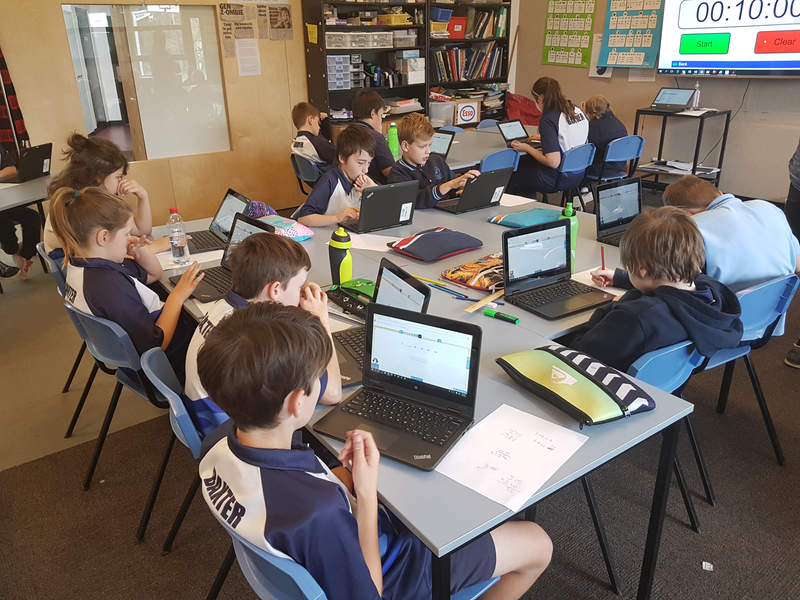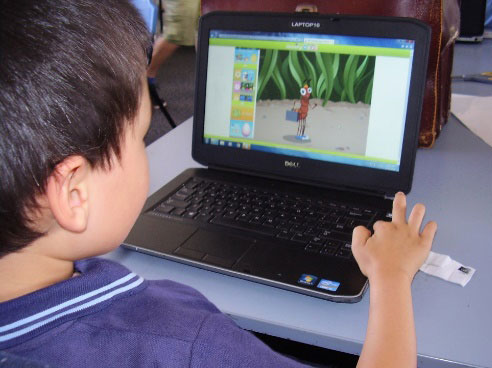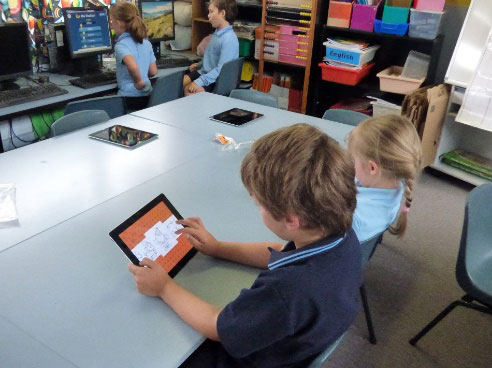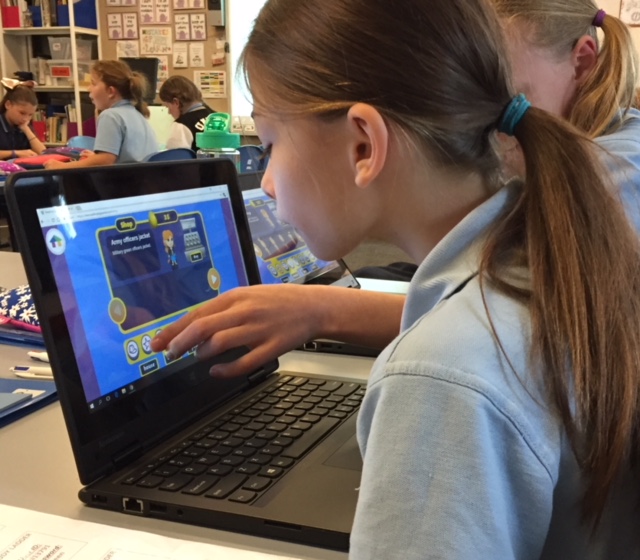Learning
English
At Baxter Primary, we are deeply committed to teaching and learning. Mastering reading is crucial not only for academic success and thriving in society, but also for the joy that reading brings to life. We aim for every child to be successful in reading.
Our staff have invested countless hours studying research on how children learn to read. As a result, their day to day practice ensures all students are provided with the opportunity to develop reading skills. It also ensures any difficulties are addressed promptly when they arise. We believe that with improved knowledge comes improved practice.
When we know better, we do better!
At Baxter PS, we offer a structured literacy program that fosters skill development in reading, writing, speaking and listening within a supportive and stimulating environment. Our planning aligns with the Victorian Curriculum and is underpinned by best practices and evidence-based research on literacy acquisition. We use explicit teaching across all year levels and deliver a low variance curriculum.
Our two-hour daily literacy block is structured using a Gradual Release of Responsibility Model (I Do, We Do, You Do) and ensures uninterrupted learning time for students from Foundation to Year 6. The Victorian Curriculum’s Reading, Writing and Speaking & Listening strands are all incorporated throughout our literacy sessions.
Research highlights six critical components that contribute to successful reading. These are referred to as the ‘Big Six’: oral language, phonological awareness, phonics, vocabulary, fluency, and comprehension. Our comprehensive literacy program integrates these essential elements.
At Baxter Primary School, we incorporate the ‘Big Six’ as follows:
ORAL LANGUAGE: Students at Baxter are given many opportunities to develop their oral language skills. ‘Turn and talk’ with a partner happens multiple times a day, allowing students to share their ideas and knowledge with the class. Oral presentations and share times are just some of the other ways students at Baxter develop these skills. Throughout the year, each class is also provided with an opportunity to run our whole school assembly, where they present in front of the whole school community.
PHONOLOGICAL AWARENESS: Phonological awareness is the ability to recognise and manipulate the spoken parts of sentences and words. Examples include being able to identify words that rhyme, recognise alliteration, segment a sentence into words, identify the syllables in a word, and blend and segment onset-rimes. Our Foundation – Year 2 students participate in daily Heggerty sessions to practice these skills.
FLUENCY: Fluency is defined as the ability to read with speed, accuracy, and proper expression. All students participate in fluency pairs throughout the week to build their reading fluency. Within these sessions, students are taught how to listen to their partner and provide feedback. Students are also given the responsibility of monitoring their own growth, through personal reading goals. Our F-2 students take home decodable passages each week as part of their Home Activities, and as their reading progresses, they are provided with more challenging texts.
PHONICS: Phonics is the mapping of speech sounds (phonemes) to letters (or letter patterns, i.e. graphemes). All students at Baxter participate in daily phonics sessions. Our Foundation – Year 2 classes use UFLI (University of Florida Literacy Institute) Synthetic Phonics Program. It provides systematic and explicit phonics instruction. This helps students learn the relationship between letters and sounds, which is fundamental for decoding and spelling.
Across Years 3-6, students learn to spell using the evidence-based program Spelling Mastery. This six-levelled spelling series uses an explicit, teacher-direct method of instruction that allows teachers to deliver interactive spelling and writing lessons through the use of patterns and rules.
VOCABULARY: Vocabulary instruction is crucial for building background knowledge. When students are taught the meanings of unfamiliar words encountered in texts, they are better equipped to understand and comprehend what they read. Here at Baxter, vocabulary is effectively taught through explicit instruction and contextual activities, such as reading aloud and discussing new words. Our text-based units allow for lots of discussions about new vocabulary. Additionally, engaging students with interactive games, word maps, and repeated exposure, helps reinforce and solidify their understanding and use of new vocabulary.
COMPREHENSION: This involves the ability to understand and interpret the meaning of text. It is developed through strategies like predicting, questioning, summarising, and making connections. Once students have developed these strategies, they have a greater ability to grasp and retain the content and meaning of a text. At Baxter, these strategies are taught and practiced through explicit lessons and activities such as class read aloud, text based units, novel studies and the use of graphic organisers.
Our structured literacy program…
– focuses on building skills to mastery
– incorporates spaced and interleaved practice
– reflects high quality teaching and learning
– is based on ongoing monitoring and assessment
– transfers learned literacy skills into other areas of the curriculum
At Baxter PS, students are explicitly taught writing fundamentals that include handwriting, grammar and punctuation, spelling, sentence construction, and paragraphing. Writing lessons encompass various activities. These include modeled, shared, and independent writing, that is tailored to their learning goals and individual capabilities. Our daily/weekly reviews also allow students to reinforce their knowledge and skills.
Our comprehensive writing program ensures students develop essential skills across all aspects of writing. This includes:
Sentence Structure: Sentences are the building blocks of all writing. Students are explicitly taught the elements of a sentence, along with how to construct the different sentence types. Our syntax lessons allow students to develop their ability to correctly form a sentence, use various types of punctuation and edit their own writing based on the concepts taught.
Grammar: Explicit grammar lessons are taught weekly, and concepts are consistently revised during literacy sessions. These lessons cover ‘parts of speech’ and are usually taught in unison with syntax lessons. Grammar is also addressed in the context of students’ day to day writing.
Spelling Rules: UFLI and Spelling Mastery lessons introduce various spelling rules to students and these rules are reinforced in literacy sessions. Many spelling rules involve morphology. Specific morphology lessons are conducted on a weekly basis and students are provided with multiple opportunities to apply these rules.
Genre: Students are exposed to a variety of genres and are taught the specific structures associated with each genre type. Foundation students begin with a basic recount, then move onto narrative writing. As they move into higher year levels, they are exposed to other genres such as persuasive texts, procedural writing, and information reports.
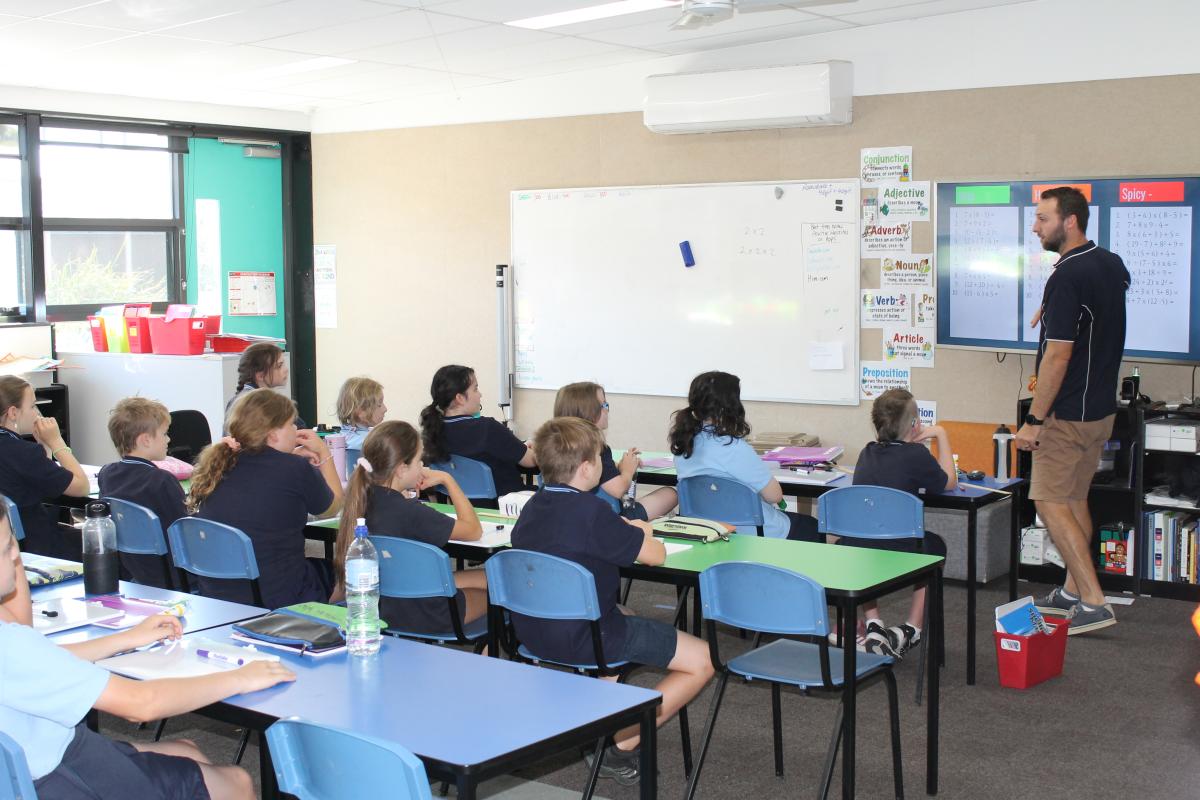
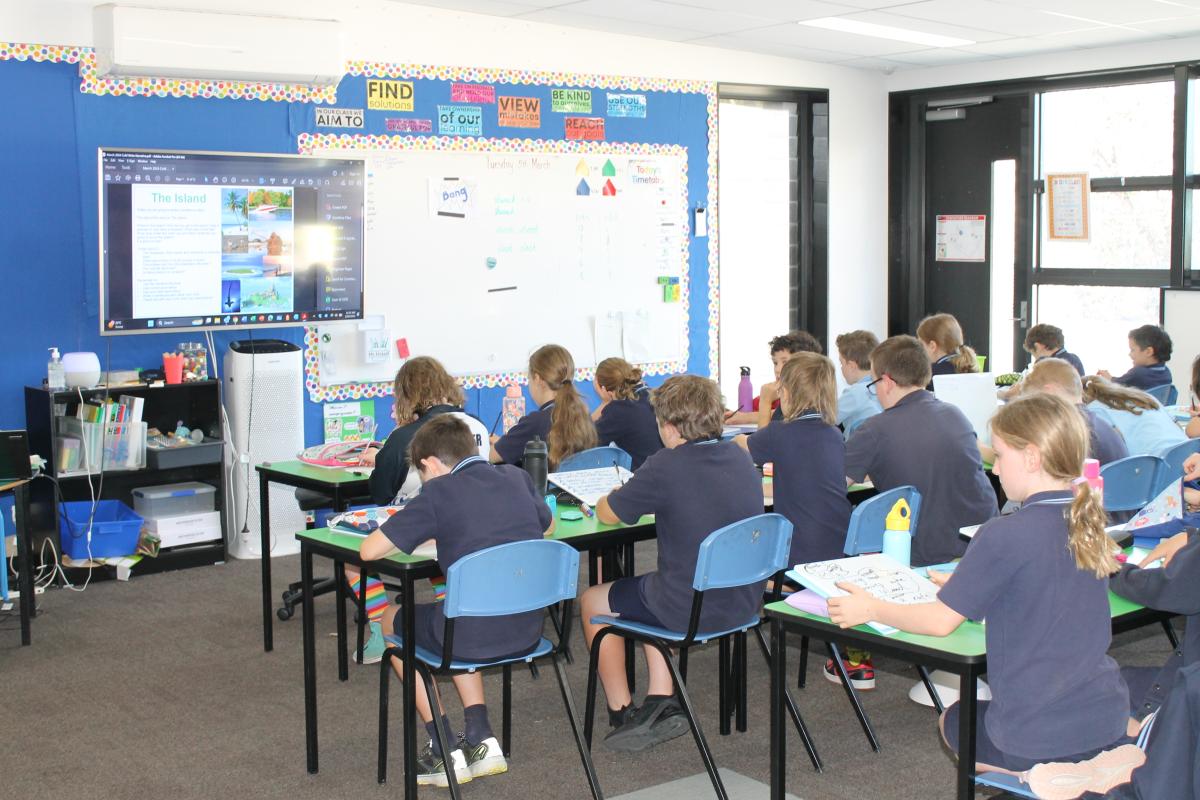
Mathematics
At Baxter, Mathematics is recognised as a core area of learning that equips our students with the skills, strategies and knowledge required to function in the world today.
Our students are engaged in a minimum of five hours of mathematics per week, where our focus is to enable automaticity in the basics. This then allows students to be more confident when working with complex problems.
We explicitly teach the concepts and skills needed for students to be proficient mathematicians. Our Mathematics teaching and learning is based on the Victorian Curriculum, providing a focus on targeted skill development and practical application of concepts.
The proficiencies of Understanding, Fluency, Problem Solving and Reasoning are fundamental to learning mathematics and working mathematically. These are applied across all three strands Number and Algebra, Measurement and Geometry and Statistics and Probability.
In the Junior Years (Foundation – Year 2), students build a strong foundation in number facts through explicit teaching & modelling, hands-on materials, and digital tools, supported by number fluency sessions and Daily Reviews.
In the Middle Years (Years 3 – 4), they expand on their problem-solving skills and standard algorithms, with a strong focus on multiplication facts. Mathematical concepts are reinforced through regular maths fluency sessions and Daily Reviews.
In the Senior Years (Years 5 – 6), students tackle more complex problems and topics, such as angle measurement, money in real life situations, and establishing connections between fractions, decimals, and percentages. They continue to consolidate their learning through maths fluency sessions and Daily Reviews.
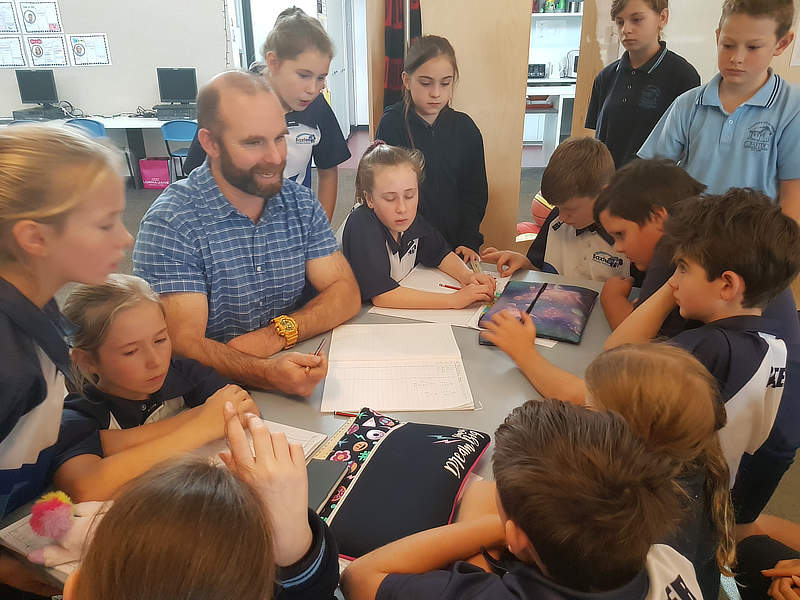
Health & Physical Education
At Baxter Primary School, the purpose of our Health and Physical Education program is to provide equal opportunities in sport for all children regardless of their gender, body type or physical ability. At Baxter, we develop and promote sporting opportunities for all children and we try to promote an enjoyment of sport, appropriate to the child’s age. Our aim is to teach primary age children the benefits of sport and keeping fit and healthy. It is our ambition to ensure that as many children as possible are involved in sport and to promote a sense of fair play and good sportsmanship.
This is implemented by each grade being allocated a 55 minute physical education lesson each week. Children in Foundation and Year 1 participate in an additional hour long PMP session that takes place one morning a week, led by the grade teachers. Year F/1/2 children also participate in a 6 week intensive swimming and water safety program. Meanwhile the children in Year 3-6 partake in a 60 minute sport education session each week and Year 4-6 children are provided with an additional 2 hours of health per week. Year 5 & 6 students participate in winter and summer inter-school sports, competing against other schools within the Murdoch District. Many children in Year 3-6 will also have the opportunity to represent the school in district events such as athletics, cross country and swimming. Some children may then progress to Divisional / Regional / State level competition.
Visual Arts
We have a spacious and well stocked visual arts room at Baxter Primary School. The Arts are valued and celebrated at our school because we understand how important it is for children to develop their creativity and imagination. The art room can be a release valve from the busy learning environments of classrooms, science rooms and computer labs. We organise our terms according to the medium we are using. For instance, in term one we usually concentrate on drawing, painting and printing. We use oil and wax pastels, pencils and chalk, pens and paint, water colour and acrylics. The younger students use pastels, pens and paint to learn drawing, building on the skills they have already learnt. We look at how we can use shapes to draw different animals and we learn about colours and mixing them to make new ones.
Each age group learns new skills depending on their ability. They are introduced to different media as they progress through the school and are shown drawing skills to practise and experiment with. The older children are introduced to famous artists and we explore the styles, colours and subjects that they use. This year we have looked at Michelangelo and William Turner. We have attempted our own Mona Lisa and atmospheric stormy sea scapes inspired by the paintings of Turner.
Next term we look forward to playing with paper and card, learning how to use new tools and finding out how we can join shapes together. Stay tuned for an action packed update of our wonderful students making 3 dimensional art.

STEAM
At Baxter we believe STEAM is an opportunity for students to roll up their sleeves and get busy investigating the world round them. We have a dedicated STEAM room, where grades can go to investigate a range of scientific and musical concepts using a wide variety of materials and equipment. Our camping program also gives us the opportunity to investigate natural sciences in their settings.
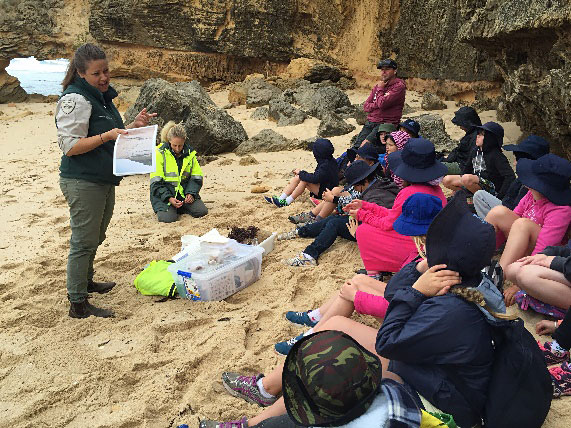
Information Communication Technology (ICT)
Each class is fitted with an interactive white board, large screen television or a touch screen television enabling classes to explore up-to-date information from around the world. In an increasingly digitalised world it is important that future generations have an understanding of safety and appropriate behaviour. We use online social media sites such as Edmodo and SeeSaw to enhance communication between school and home and implement appropriate online behaviour. Baxter has achieved Esmart status, recognising our efforts and practices in creating a safe and productive learning environment.
